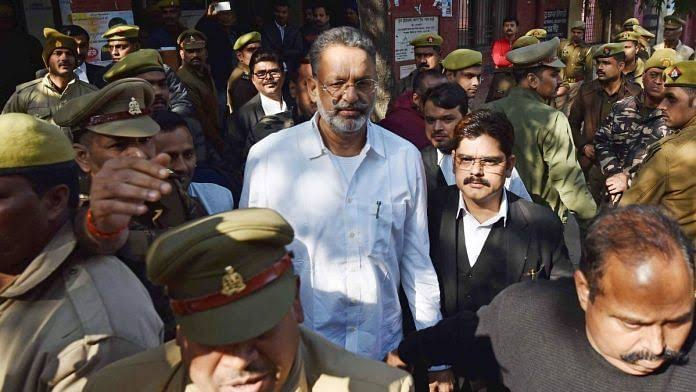Why do We Cheer for Zohran Mamdani Online but Vote for Criminals at Home?
- Sania Mirza Baig

- Sep 4, 2025
- 3 min read
In recent years, Indian social media has shown a remarkable tendency to elevate and celebrate progressive politicians abroad. Among them, Zohran Mamdani, an Indian-origin Assemblyman from New York, has become a symbol of integrity and people-oriented governance. His speeches resonate widely, his policies are shared as models of justice, and his authenticity feels refreshing in an era where politics is often equated with cynicism. For many Indians, Mamdani embodies a vision of politics rooted in compassion and accountability.

Yet this celebration reveals an uncomfortable paradox. At home, the same electorate that admires leaders like Mamdani continues to elect MPs and MLAs with pending criminal charges, including cases of murder, rape, extortion, and corruption. We romanticise honesty abroad but normalise criminality within our own democratic structures.
The extent of this normalisation is stark in electoral data. According to the Association for Democratic Reforms (ADR), nearly half of India’s recently elected MPs face criminal charges. In the 18th Lok Sabha, 251 out of 542 members—about 46%—have pending cases, and 31% of these involve serious offences such as attempted murder, crimes against women, and communal violence. The trend is worsening, not receding: in 2009, 30% of MPs had criminal cases; in 2019, it was 43%. Political parties remain complicit, consistently awarding tickets to such candidates because they are considered “winnable.” Electoral competition has not filtered out tainted individuals, it has entrenched them.

Why do Indian voters, who clearly admire integrity abroad, fail to demand the same at home? Political science research offers clues. In many constituencies, particularly where state capacity is weak, criminal politicians are seen not as liabilities but as assets. Milan Vaishnav’s influential When Crime Pays shows how candidates with muscle power are often viewed as effective brokers of resources, protection, and dispute resolution. Where governance fails, muscle power fills the vacuum. For many voters, the question is not whether a candidate is clean, but whether they can deliver.
Caste and identity politics reinforce this trend. Voters frequently privilege representation over morality, supporting candidates from their community even when serious charges are pending. This is not blind loyalty but a rational calculation: in a fragmented polity, caste and kinship ties often provide the most reliable access to patronage networks. Money compounds the problem. Elections in India are enormously expensive, and candidates with illicit wealth are better positioned to finance their bids. For parties, this creates a perverse incentive: wealthy candidates with criminal backgrounds maximize electoral prospects. Thus, the nexus of caste, money, and muscle sustains a system where criminality is politically advantageous.
The slow pace of India’s legal system further entrenches this reality. Criminal cases against politicians can drag on for decades without resolution. The Representation of the People Act disqualifies convicted legislators, but endless judicial delays mean that conviction rates are low and enforcement minimal. As a result, accused leaders continue contesting and winning elections while trials remain pending. Voters are left with few “untainted” options, reinforcing the perception that “all politicians are corrupt” and narrowing the space for honest candidates.
The implications are profound. When lawmakers themselves face serious charges, the credibility of democratic institutions erodes. Law-making bodies risk becoming sanctuaries for lawbreakers. Policy priorities shift toward self-preservation rather than public welfare. Citizens, witnessing the impunity of elected officials, lose faith in accountability itself. Political office becomes less about public service and more about protection from prosecution.
And yet, admiration for figures like Zohran Mamdani shows that Indian voters are not blind to the value of integrity. They celebrate models of honest, people-centered politics, just not at home. This reveals a tension between aspiration and pragmatism: voters aspire to honesty, but often choose candidates who can provide immediate benefits, even if through dubious means.
This raises a deeper question: do Indians truly want better representatives, or have they grown accustomed to a politics of patronage and criminality? On one hand, voters are constrained by systemic factors—limited choices, identity loyalties, institutional weaknesses. On the other, persistent support for tainted candidates reflects complicity. Democracy depends not only on those who govern but also on those who choose their governors.
Ultimately, the juxtaposition of celebrating progressive icons abroad while tolerating criminal leaders at home underscores the hypocrisy at the heart of Indian democracy. It is easy to admire honesty when it comes without cost, but harder to demand it when it requires challenging entrenched systems of caste, money, and power. Until voters reject candidates with criminal records, criminalisation will remain the rule, not the exception. Mamdani’s appeal is proof that Indians know what integrity in politics looks like, the question is whether they are willing to demand it at home.







Comments